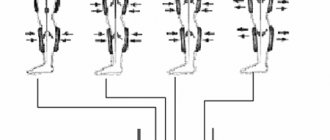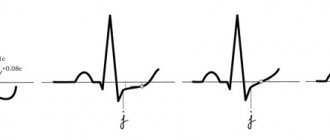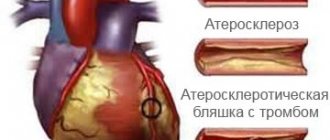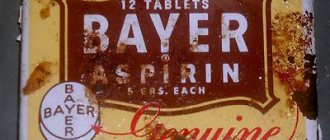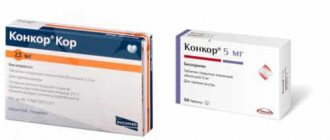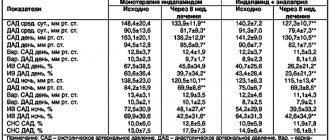Medicines for high blood pressure are in widespread demand not only in our country. Today, hypertension (hypertension) is considered a disease of youth, as cases of the disease are increasingly being recorded among young people and adolescents.
- Andipal for high blood pressure
- Corvalol: lowers blood pressure?
- Valerian and blood pressure
- Shilajit and blood pressure
- Eufillin and blood pressure
- Glycine lowers blood pressure
- Anaprilin for blood pressure
- Mydocalm: does it increase blood pressure?
- No-spa and pressure
- Concor from pressure
- Enalapril: for blood pressure?
- Papazol and blood pressure
- Enap and pressure
- Nitroglycerin and blood pressure
- Captopril for blood pressure
- Novopassit and pressure
- Papaverine and blood pressure
- Iodine and blood pressure
- Afobazole: effect on blood pressure
- Honeysuckle and pressure
Drug treatment for high blood pressure may include the following medications:
- β-adrenolytics (normalize cardiac activity and reduce peripheral vascular resistance; the most popular are timolol and anaprilin)
- diuretics (they remove excess fluid from the body; veroshpiron and furosemide are effective and widespread)
- ACE inhibitors (affect the rhinin-angiotensin system; mainly prescribed ramipril or captopril)
- calcium antagonists (in pharmacies you can find cinnarizine, felodipine, verapamil)
- alpha blockers (block impulses that lead to vasoconstriction; doxazoline is the most popular)
- angiotensin receptor blockers (inhibit the active action of angiotensin; you can buy valsartan, irbesartan, diovan, cozaar in pharmacies)
- medications to dilate blood vessels, such as apressin or dimecarbine
Andipal for high blood pressure
Andipal is a drug from a number of vasodilating antispasmodics. It contains substances such as analgin, papaverine, dibazole and phenobarbital. Dibazole just affects blood pressure, reducing them. Papaverine is an antispasmodic that will relax smooth muscles. Phenobarbital has a calming effect, which also reduces blood pressure. But pressure decreases only if it is caused by stress or vascular spasms. If you are diagnosed with essential hypertension, Andipal will not be effective.
The medicine in question is not intended to stabilize blood pressure. If you have headaches without a doctor’s prescription, it is better not to take this drug, because low blood pressure can also be the cause of headaches.
Interaction
Simultaneous use with vasodilators, antihypertensive drugs, ACE inhibitors, beta-blockers, CCBs, procainamide, tricyclic antidepressants, MAO inhibitors, phosphodiesterase inhibitors, as well as ethanol, enhances the hypotensive effect.
Prescription with dihydroergotamine may lead to an increase in its content in the blood and an increase in blood pressure (due to increased bioavailability of dihydroergotamine).
The simultaneous administration of nitroglycerin and heparin reduces the effectiveness of the latter (after discontinuation of the drug, a significant decrease in blood clotting is possible, which may require a reduction in the dose of heparin).
Corvalol: lowers blood pressure?
The composition of Corvalol includes ethyl ester of α-bromoisovaleric acid, phenobarbital and mint oil, which gives the drug a specific strong odor. Corvalol relieves spasms, stabilizes the human nervous system, and greatly dilates blood vessels. After taking this drug, many note that it was easier for them to fall asleep.
This medicine can be taken if high blood pressure is caused by stress, vascular spasms, or lack of sleep. Corvalol is drunk before meals (add 30 drops of medicine to 50 ml of water), 1-3 doses per day. In some cases, doctors advise increasing the dosage to forty drops. Corvalol is also sold in tablets, which are taken a couple of times a day in the amount of one or two tablets.
Long courses of Corvalol to lower blood pressure are prohibited. The drug should be alternated with another drug of similar action or breaks between courses of administration.
Valerian and blood pressure
Valerian tincture contains isovaleric acid, borneol ester, alkaloids and valeric acid. This remedy helps to calm down sleep disorders, stress, and also helps with gastrointestinal spasms. Valerian tincture reduces blood pressure caused by the reasons just listed, but the medicine does not have a direct hypotensive effect. Mainly prescribed as part of combination therapy. Take valerian after meals, 25 drops (maximum 4 times a day). Among the side effects that appear with an overdose are drowsiness, causeless fatigue and slight dizziness.
Shilajit and blood pressure
Shilajit is a natural remedy that contains many useful micro- and macroelements, as well as organic substances. Scientists still do not answer exactly the question of how mumiyo affects blood pressure. It may contain various ingredients depending on the location of the deposits and some features of the area.
Shilajit is known to relieve inflammation, help remove toxins from the body, strengthen the defenses, etc. Shilajit is supposed to lower blood pressure. It contains chromium, which affects blood pressure. But one tablet of the product is unlikely to help. A minimum twenty-day course is required. Gradually, the body's metabolic processes stabilize, and along with them, the pressure decreases to some extent.
Nitrates in the treatment of patients with coronary heart disease: focus on isosorbide dinitrate
V.P. LUPANOV
, Doctor of Medical Sciences, Professor,
Research Institute of Clinical Cardiology named after.
A.L. Myasnikov Russian Cardiological Research and Production Complex of the Ministry of Health of Russia The article discusses the pharmacology of nitrates and their place in the complex therapy of coronary heart disease. The mechanisms of action of organic nitrates, especially the short-acting metered-dose spray isosorbide dinitrate (ID), are shown. Indications and contraindications for its use in various forms of IHD are analyzed.
The first drugs for the treatment of angina pectoris are nitrates - drugs from the group of nitrovasodilators. In 1879, Dr. W. Murrell published in the English journal Lancet the results of using a 1% alcohol solution of nitroglycerin to relieve angina attacks and to prevent them before physical activity [1]. Until the advent of b-blockers and calcium channel blockers (calcium antagonists), nitrates were the only representatives of antianginal drugs in the cardiologist’s arsenal. Despite the recent emergence of other effective drugs, nitrates still occupy a strong position in the treatment of patients with various clinical forms of coronary artery disease [2-4].
Fast-acting nitrates are still an unsurpassed means of relieving angina attacks. They are capable of providing a short-term, but quite pronounced and reliable effect [5-7]. The advantage of short-acting nitrates is the ability not only to prevent, but also to stop an already developed attack of angina. Recently, nitrates have been created in the form of aerosols containing either nitroglycerin or isosorbide dinitrate (Isoket-spray). The advantages of nitrate aerosols are dosage accuracy, good preservation of the drug, and ease of use.
The modern classification of nitrates is based on their pharmacological structure (organic nitrates, sydnonimines), duration of action (short-acting, moderate-acting, long-acting). Nitrates are available in various pharmacological forms (for intravenous, oral, transdermal, buccal use), which significantly expands the possibilities of their use both in the stable course of cardiovascular diseases and in emergency conditions.
Currently, three drugs in this group are used: nitroglycerin (NG), isosorbide dinitrate (ID) and isosorbide-5-mononitrate (ISM), which is a natural metabolite of ID.
Classification of organic nitrates [8]:
I. Short-acting organic nitrates for relieving angina attacks:
A. Nitroglycerin group: sublingual - NG tablets; nitroglycerin alcohol solution; Votchal drops (contain nitroglycerin and menthol); spray - Nitrospray, etc. B. Isosorbide dinitrate group: Isoket spray, etc. II. Short-acting organic nitrates: A. Isosorbide dinitrate group: tablets for sublingual use: Iso Mac 5 mg, etc.; tablets for oral administration: Nitrosorbide, Izodinit, etc. B. Isosorbide-5-mononitrate group: Mono Mac; Efox et al.
Mechanism of action and pharmacological effects
The antianginal effect of nitrates in ischemic heart disease plays a role primarily in the powerful dilating effect on the coronary vessels and hemodynamic changes that arise due to the relaxation of the entire system of peripheral vessels, including dilatation of capacitive veins. All this leads to a decrease in end-systolic and distolic pressure in the left ventricle (LV); Peripheral vascular resistance also decreases, which reduces LV afterload and its filling pressure, and also improves coronary blood flow in the subendocardial parts of the myocardium, which are most sensitive to ischemia. Nitrates cause vasodilation of arterioles and veins, which forms the basis for the symptomatic improvement of angina pectoris through the action of the active component of these drugs - nitric oxide (NO) - and by reducing preload [9, 10].
By duration of action
nitrates are divided into short-acting preparations (tablets, aerosols) (up to 1 hour); regular tablets of moderate prolonged action (from 1 to 6 hours) and special tablets, capsules, as well as patches with nitroglycerin of significant prolonged action (from 6 to 16 hours).
Pharmacokinetics
According to the route of entry into the body, nitrates are distinguished, absorbed through the mucous membrane of the mouth or in the gastrointestinal tract, for cutaneous and intravenous use ( Table 1
). By dosage forms: tablets, capsules, sprays, ointments, patches, solutions, etc. The low systemic bioavailability of NG when taken orally and at the same time good absorption through the skin and mucous membranes of NG capsules explain why in recent years depots have been used less and less. (or retard) NG tablets or capsules.
| Table 1. Pharmacokinetic parameters of the three main organic nitrates | |||
| Index | Nitroglycerine | Isosorbide dinitrate | Isosorbide-5-mononitrate |
| Systemic bioavailability,% when taken under the tongue when taken orally when applied cutaneously | 30-80 0—10 75 | 30—10 20—30 10-30 | Low 100 Low |
| Half-life in blood plasma | 2-4 min | 40-90 min | 4-5 hours |
| Plasma clearance | 50—70 l/min | 4 l/min | 0.11 l/min |
| Active metabolites | 1,2- and 1,3-glycerol dinitrates | Isosorbide 5- and 2-mononitrate | No |
| Elimination methods | Denitration + formation of glucuronides | Denitration + formation of glucuronides | Denitration (80%) + formation of glucuronides (20%) |
Indications for use and dosage
The clinical effectiveness of nitrates for angina pectoris largely depends on which drug, in what dose and dosage form is used, as well as on the regimen of its administration [11, 12]. There are organic nitrates for every clinical situation. The variety of dosage forms of nitrates makes it possible to select an individual treatment regimen in each specific case. This, on the one hand, allows you to make maximum use of the therapeutic properties of nitrates, and on the other, minimize the risk of side effects.
Table 2
the main forms of organic nitrates and recommended doses are shown.
| Table 2. Dosage forms of organic nitrates and recommended doses | |||
| Drug, dosage form | Single doses | Frequency of reception | Onset/duration of action |
| Nitroglycerin (sublingual tablets, capsules) | 0.3-0.6 mg | 1-3 times for 15 minutes | 1.5-2 min/10-30 min |
| Nitroglycerin (aerosol, under the tongue) | 0.4 mg (one inhalation) | As needed | 2 min/20-30 min |
| Isosorbide dinitrate (sublingual tablets) | 2.5-10 mg | As needed | 5—10 min/1—2 h |
| Isosorbide dinitrate (aerosol, Izoket-spray) | 1.25 mg (one inhalation) | As needed | 0.25—1.0 min/1—2 h |
| Nitroglycerin prolonged (orally) tablets | 6.4 mg | 3 times a day | 2-5 min/3-5 h |
| Nitroglycerin (buccal plates on the gums) | 1, 2, 3 and 5 mg | 2 or 3 times a day | 2-5 min/3-5 h |
| Isosorbide dinitrate (orally) | 10-40 mg | 2 or 3 times a day | 15 min/4-6 h |
| Isosorbide dinitrate prolonged (orally) | 40-120 mg | Once a day | Approximately 60 min/10-12 h |
| Isosorbide-5-mononitrate (orally) | 20 mg | Twice a day | 30 min/5-7 h |
| Isosorbide-5-mononitrate prolonged (orally) | 50-100 mg | Once a day | Approximately 60 min/10–16 h |
| Nitroglycerin in the form of ointment 2%, cutaneous | 0.5-2.0 inch (1 inch = 2.54 cm) | Twice a day | 15 min/8 h |
| Nitroglycerin skin patch | 0.2—0.8 mg/h (10 mg/day) | 1 per day | 30 min/8-24 h (12 hour interval required) |
For proper therapy with nitrates, it is necessary to know the exact diagnosis, document the presence of myocardial ischemia and angina as its manifestations, and establish the features of its occurrence [4, 7].
Short-acting nitrates for the relief of angina attacks
.
The main representative of this group of organic nitrates is nitroglycerin
. The drug has a myotropic antispasmodic effect and directly relaxes the muscles of the coronary vessels. The central inhibitory effect on sympathetic tone plays a certain role in this. The antianginal effect of NG is also due to the restructuring of hemodynamics associated with a general effect on blood vessels, relaxation of the smooth muscles of peripheral vessels, especially with the dilation of veins. Under the influence of NG, venous blood flow to the heart decreases, pressure in the right atrium and pulmonary artery system decreases, and peripheral vascular resistance decreases. The myocardium is also unloaded, its tension associated with resistance to blood ejection is reduced, and the myocardial oxygen demand and energy costs are reduced. Along with the weakening of ischemia, pain impulses from the ischemic focus gradually disappear and the pain syndrome stops. It is the ability of NG to stop angina attacks and prevent their occurrence that makes it a necessary part of the treatment of patients with coronary artery disease [11].
Isosorbide dinitrate (5 mg sublingual)
helps to interrupt an attack of angina for about 1 hour due to the fact that dinitrate must undergo transformation into mononitrate in the liver in order to exhibit its antianginal effect (after about 3-4 minutes, which is longer than when taking NG). After oral administration, hemodynamic and antianginal effects persist for several hours, which provides longer-term protection against angina pectoris than after taking NG sublingually.
Isosorbide dinitrate in the form of a spray (Isoket-spray)
for spraying onto the oral mucosa, onto the inner surface of the cheek, it is successfully used to relieve attacks of angina pectoris before physical or emotional stress, which usually causes angina pectoris [12]. To do this, you need to inject the aerosol into your mouth and hold your breath. The drug is available in 15 ml glass bottles containing 300 doses of 1.25 mg ID. If after the first injection a painful attack persists, then the injection can be repeated at an interval of 30 seconds once or twice while holding your breath. If a painful attack, typical of an attack of angina, persists, then you can repeat the injection of the aerosol at intervals of 30 seconds one or two more times while holding your breath.
Isosorbide dinitrate metered spray (Isoket)
. One dose of the drug solution contains 1.25 mg of ISDN. After spraying onto the oral mucosa, the effect appears within 1-3 minutes and lasts 90-120 minutes. Directions for use: bring Isoket-spray close to your mouth, holding the bottle vertically. Take a deep breath, exhale. Next, spray 1 dose (press the sprayer) into your mouth (this may cause a slight burning sensation on your tongue). After taking 1 dose, close your mouth and breathe through your nose for 30 seconds. Each time you press the spray nozzle, an equal amount of solution will be sprayed into tiny droplets. The drug easily penetrates the oral mucosa and enters the bloodstream in a matter of seconds. Isoket spray does not contain freon and is environmentally friendly. Another advantage is the transparency of the bottle, which allows you to notice the need for replacement in time.
Indications for the use of isosorbide dinitrate spray: relief of angina attacks, prevention of angina attacks, acute myocardial infarction, acute left ventricular failure.
To relieve an attack of angina pectoris or before physical or emotional stress that can cause an attack, you need to spray it into the mouth 1-3 times with an interval of 30 seconds between injections while holding your breath. A single dose of 3 injections to relieve an attack can be increased only on the strong recommendation of a doctor.
Pharmacodynamics of nitrates are presented in Table 3
.
| Table 3. Nitrates and nitrate-like drugs for stable angina | |||
| Active substance | Duration of action | A drug | Usual dosage |
| Nitroglycerin (glyceryl trinitrate) | Short-acting | Nitrospray Nitromint Nitrocor | 0.3-1.5 mg sublingually for angina attacks 1.25-3.75 mg sublingually |
| Long acting | Nitrong-forte | 6.5-13 mg 2-4 times a day | |
| Isosorbide dinitrate | Short-acting | Cardiket spray | 1-3 sprays in the mouth (dose 1.25 ID) |
| Moderate duration | Cardiket 20 Iso Mac 20 Nitrosorbide | 20—80 mg/day | |
| Long acting | Cardiket 40, 60,120 Iso Mac retard | 40—120 mg/day | |
| Isosorbide mononitrate | Moderate duration | Monocinque Mononite Monosan | 40-120 mg/day |
| Long acting | Monocinque retard Olycard retard Efox long Mono Mac Depot Spectrol | 40—240 mg/day | |
| Molsidomin | Moderate duration | Corvaton, Sydnopharm Dilasid | 4-12 mg/day 2-4 mg 2-3 times/day |
| Long acting | Dilasidom retard | 8 mg 1-2 times a day. | |
Isoket spray in patients with angina pectoris can be taken prophylactically in cases where there is reason to expect an attack of angina pectoris, for example, during physical activity after eating, emotional stress, sexual activity, in case of going outside in cold weather, with angina pectoris that occurs with severe and moderate loads
Under tolerance (or addiction)
understand a decrease in the duration and severity of the effect of nitrates with regular use or the need to use a larger and larger dose to achieve the same effect while maintaining a sufficiently high concentration in the blood. The cause of tolerance to nitrates is considered to be: a decrease in the formation of nitric oxide (NO), acceleration of its inactivation due to increased activity of phosphodiesterases and increased formation of endothelin-1, which has a vasoconstrictor effect [13]. The classical hypothesis is associated with an intracellular decrease in the concentration of sulfhydride (SH) groups necessary for the implementation of the effects of NO.
Tolerance to nitrates depends on the prescribed dose and duration of treatment, it reduces the effectiveness of treatment and extends not only to the antianginal and hemodynamic effects, but also to the antiaggregation effect. Tolerance (addiction), a potential problem, can be prevented by changing the dosage and timing of administration, as well as by using slow-release drugs. Habituation is a reversible phenomenon. If nitrate is removed from the body, then sensitivity to it is quickly restored. It also turned out that if long-acting nitrates are not prescribed constantly, but in such a way that a period (7-10 hours) is created during the day when the drug is not in the body, then addiction to them does not develop or develops to a lesser extent than in those cases where they are taken continuously.
Many patients need the effect of nitrates only for a very limited period (this applies to patients with exertional angina of the 1st or 2nd functional class), when they give themselves increased stress (for example, going to or from work). It is for such patients that the aerosol form of nitrates is convenient.
Patients of functional class I (FC). Attacks of angina pectoris occur rarely and only under significant loads; as a rule, they do not require constant use of antianginal drugs. Nitrates are prescribed only intermittently in short-acting dosage forms that provide a quick and pronounced effect: tablets, capsules, NT and ID aerosols. Such forms should be taken 5-10 minutes before the expected physical activity, which usually causes an attack of angina.
For patients with stable angina pectoris class II (with infrequent attacks of angina and rare episodes of myocardial ischemia during the day), intermittent administration of nitrates before situations that can cause an attack of angina is possible. Along with short-acting forms, moderately prolonged-acting forms can be used.
For patients with more severe angina pectoris class III-IV (with frequent attacks of angina and episodes of silent myocardial ischemia during the daytime and also at night), nitrates should be prescribed regularly; in such patients one should strive to maintain the effect throughout the day. For this purpose, long-acting nitrates are convenient, giving an effect lasting 10-12 hours.
For class IV angina (when angina attacks can also occur at night), nitrates should be prescribed in such a way as to ensure an effect throughout the day. For this purpose, it is more convenient to prescribe long-acting nitrates 2 times a day in the morning and evening. Since angina attacks can also occur at night, nitrates should be prescribed to ensure their round-the-clock effect, and, as a rule, in combination with other antianginal drugs, primarily b-blockers.
The effect of nitrates on quality of life.
Quality of life is an integral indicator that includes the physical, social and psycho-emotional well-being of the patient and reflects his physical, social, cognitive and sexual abilities. The immediate task of improving the quality of life is to eliminate pain, change motor activity, psycho-emotional status, etc.; The long-term goal is to improve survival and reduce hospitalizations. In many patients with stable angina, due to periodic attacks leading to significant restrictions in daily life, the quality of life is reduced due to lack of energy, insufficient sleep, decreased physical activity, and the presence of mental disorders. The effect of nitrates on the prognosis of patients with coronary artery disease has not been clearly established.
In patients with angina after an MI, nitrates are most often used in combination with ACE inhibitors, which prevent the development of tolerance.
Nitrates are used for various forms of IHD:
Unstable angina (UA)
. The use of nitrates for NS is considered a generally accepted method of treatment. Intravenous infusion of NG in most cases effectively relieves and prevents the occurrence of angina at rest. In case of acute myocardial infarction or acute left ventricular failure, Isoket spray is taken only under the control of blood pressure, heart rate and medical supervision. At the beginning, 1-3 doses at intervals of 30 seconds, if there is no effect within 10 minutes, an additional dose (only under the supervision of a physician). Intravenous infusion of ID (isoket 0.1%) is more effective for NS than oral medications.
The use of nitrates in myocardial infarction
indicated for persistent signs of myocardial ischemia, as well as for congestive heart failure.
However, nitrates should not be prescribed when systolic blood pressure is <90 mmHg. Art. or when it decreases by more than 30 mm Hg. Art. from baseline, severe bradycardia (heart rate <50 beats/min) or tachycardia (heart rate >100-110 beats/min).
When prescribing drugs with a hemodynamic mechanism of action, in particular nitrates, in elderly patients, the following rules should be observed: start treatment with lower doses, carefully monitor undesirable effects and always consider changing the drug if it is poorly tolerated and insufficiently effective.
Contraindications to the use of nitrates
They can be divided into absolute: increased sensitivity to nitrates, severe arterial hypotension, hypovolemia, left ventricular failure with low end-diastolic pressure in the left ventricle, constrictive pericarditis, hemorrhagic stroke (up to 6 months); and relative: orthostatic arterial hypotension, hypertrophic cardiomyopathy with obstruction of the outflow tract, severe stenosis of the aorta or left atrioventricular orifice, increased intracranial pressure, encephalopathy, angle-closure glaucoma with high intraocular pressure, anemia.
Side effects of nitrates
Side effects that make it difficult to use nitrates (headache, palpitations, dizziness) caused by reflex sinus tachycardia also occur when taking short-acting nitrates. Hypotension is the most serious and headache the most common side effect of nitrates.
Headaches can be relieved with aspirin, but they can also lead to loss of adherence to treatment and even refusal to take nitrates.
During nitrate therapy, drinking alcohol may provoke or worsen hypotension.
Some patients may experience ineffective treatment with nitrates due to resistance to the action of nitric oxide or intolerance to nitrates.
A potential complication of taking long-acting nitrates is worsening endothelial dysfunction, and therefore the common practice of mandatory prescribing long-acting nitrates as first-line drugs in patients with exertional angina needs to be reconsidered [14].
Drug interactions of nitrates.
They are mainly pharmacodynamic in nature and involve increased vasodilation caused by calcium antagonists (nifedipine, amlodipine, felodipine, etc.) and ACE inhibitors.
Sapropterin is a cofactor for the synthesis of nitric oxide. It is recommended to be careful when using sapropterin-containing drugs simultaneously with all vasodilating agents whose action is associated with nitric oxide (NO), including NO donors - nitroglycerin, IDN, IMN, etc.
It should be noted that when nitrates are taken simultaneously with selective inhibitors of phosphodiesterase type 5 (PDE-5) (sildenafil, vardenafil, tadalafil, etc.), prescribed in connection with erectile dysfunction or for the treatment of pulmonary hypertension, uncontrolled arterial hypotension and the appearance of myocardial ischemia due to a sharp decrease in blood flow in stenotic coronary arteries. Sildenafil reduces blood pressure by approximately 8.4/5.5 mmHg. Art. and much more when taken together with nitrates. In case of inadvertent prescribing of a combination of a PDE5 inhibitor and a nitrate, an α-adrenergic agonist or even norepinephrine may be required in the emergency setting. Nitrates cannot be prescribed with α1-adrenergic receptor blockers (prazosin). In men with prostate diseases taking tamsulosin (a1A- and a1B-adrenergic receptor blocker), nitrates can be prescribed. Nitrates should be prescribed with caution to patients with a high degree of mitral regurgitation.
Conclusion
The presence of a pronounced antianginal and anti-ischemic effect allows the successful use of short-acting Izoket-spray nitrate for the prevention and relief of angina attacks in patients with stable coronary artery disease. When using Izoket-spray, patients' tolerance to physical activity significantly increases, the number of angina attacks decreases, and the quality of life improves.
The presence of angina attacks in the absence of contraindications is an indication for the prescription of nitrates. Unfortunately, nitrates used to treat angina pectoris are not able to completely cure the disease, but they change the physiological situation in the myocardium and significantly facilitate the work of the diseased heart.
Isoket spray has been successfully used to treat various forms of coronary artery disease. It has a pronounced antianginal effect if prescribed in an adequate dose, and improves the quality of life of patients in whom angina pectoris significantly limits physical activity.
Nitrates in the form of aerosols can be used as the main antianginal agents in patients with mild angina (FC I-II). The use of Isoket-spray in aerosol form allows you to accelerate the onset of action of the active substance and reduce the time to relieve an attack compared to tablets for sublingual administration.
Nitrates only have the ability to prevent and stop attacks of angina and do not affect the course of IHD itself (the effect of nitrates on the prognosis of patients with IHD has not been proven). Therefore, patients with IHD, in addition to nitrates, need to take a number of other drugs: b-blockers, statins, aspirin, IHD inhibitors.
Literature
1. Murrell W. Nitro-glycerine as a remedy for angina pectoris.
Lancet, 1879; 1: 80-81. 2. Thadani U, Lipicky RJ. Short and long-acting oral nitrates for stable angina pectoris. Cardiovasc Drugs Ther, 1994, 8(4): 611-623. 3. Abrams J. How to use nitrates. Cardiovasc Drugs Ther, 2002, 16(6): 511-514. 4. Aronov D.M., Lupanov V.P. Differentiated use of nitrates in coronary heart disease depending on the form and severity of the disease. Cardiology, 2006, 1: 74-82. 5. Kimch A, Amsterdam E et al. Increased exercise tolerance after nitroglycerin oral spray: a new and after therapeutic modality in angina pectoris. Circulation, 1983, 67: 124-127. 6. Olbinskaya L.I., Sizova Zh.M., Ushakova A.V. Comparative effectiveness, safety, cardiohemodynamic effects of isosorbide dinitrate aerosol and sublingual nitroglycerin tablets. Ter. archive, 1998, 3: 69-72. 7. Metelitsa V.I. Handbook of clinical pharmacology of cardiovascular drugs. M., Medical Information Agency LLC, 2005: 198-203. 8. Kryzhanovsky S.A., Vititnova M.B. Medicines for the treatment of coronary heart disease (basic, clinical and evidence-based pharmacology). Lecture 2, part 1. Organic nitrates and their place in the pharmacotherapy of coronary heart disease. Therapist, 2011, 3: 38-54. 9. Munzel T, Steven S, Daiber A. Organic nitrates: update on mechanisms underlying vasodilation, tolerance and endothelial dysfunction. Vascul Pharmacol, 2014, 63(3): 105-113. 10. Lupanov V.P. Nitrates. Guide to cardiology in four volumes. Ed. acad. Chazova E.I. Ed. "Practice", 2014, 4: 688-703. 11. Mazur N.A. The role of nitrates in the treatment of cardiac patients in accordance with the principles of evidence-based medicine and recommendations for their practical use. Cardiology, 2005, 8: 92-96. 12. Silber S. Nitrates: why and how should they be used today? Current status of the clinical usefulness of nitroglycerin, isosorbide dinitrate, isosorbide -5-mononitrate. Eur J Clin Pharmacol, 1990, 38(1): 35-51. 13. Thadani U. Challenges with nitrate therapy and nitrate tolerance: prevalence, prevention, and clinical relevance journal. Amer J Cardiovasc Drugs, 2014, 14(4):287-301. 14. Lupanov V.P. Nitrates. In the book:. Rational pharmacotherapy of cardiovascular diseases: a guide for practitioners. Compendium Under the general ed. E.I. Chazova, Yu.A. Karpova. 2nd ed. corr. and additional M.: Litterra, 2015, chapter 10: 106-122. Source:
Medical Council, No. 8, 2015
Eufillin and blood pressure
Eufillin is a drug from the class of antispasmodics that expands the lumen of blood vessels, lowers blood pressure, has a positive effect on blood circulation in the body, and also helps against spasms of smooth muscles. Eufillin is mainly prescribed for pulmonary edema, asthma, cerebral edema, angina pectoris, and edema, which is a manifestation of hypertension. The drug is not prescribed to patients prone to hypotension. If pressure increases, targeted treatment with aminophylline cannot be done, since due to some components the pressure stabilizes after a slight decrease or does not decrease at all.
Pharmacodynamics
Peripheral vasodilator with a predominant effect on venous vessels. The effect of nitroglycerin is mainly associated with a decrease in myocardial oxygen demand due to a decrease in preload (dilatation of peripheral veins and a decrease in blood flow to the right atrium) and afterload (reduction in peripheral vascular resistance). It has a central inhibitory effect on the sympathetic tone of blood vessels, inhibiting the vascular component of the formation of pain. Causes dilation of meningeal vessels, which explains the headache when using it.
When using sublingual forms, an attack of angina is usually stopped after 1.5 minutes, the hemodynamic and antianginal effect lasts from 30 to 60 minutes.
Anaprilin for blood pressure
Anaprilin is an adenoblocker. It lowers blood pressure and heart rate decreases. There is a possibility of increased uterine contractions and increased gastrointestinal secretion. This drug is prescribed to patients with cardiac arrhythmias, including paroxysmal tachycardia, patients with myocardial infarction, angina pectoris, and hypertrophic cardiomyopathy. It should be taken a maximum of 4 times a day, 0.025 g, twenty minutes before meals. If the doctor has prescribed an injection, he must also indicate the dosage.
Anaprilin can lower blood pressure, regardless of whether it was previously high or low. The pressure may drop very quickly if the medication was administered quickly intravenously, or during long courses.
Mydocalm: does it increase blood pressure?
Mydocalm suppresses muscle spasms that are caused by pathologies of the central nervous system. It reduces muscle tone, inhibits the passage of nerve impulses, and inhibits the occurrence of seizures. The use of the drug in question is relevant for organic lesions of the nervous system, which are characterized by increased muscle tone, for epilepsy, encephalitis and multiple sclerosis. Mydocalm does not increase blood pressure. Due to its antispasmodic effect, rapid intravenous administration may lower blood pressure. For long courses, systematic monitoring of pressure by measurement is important.
No-spa and pressure
No-spa has an analogue, this is Drotaverine. The drug acts as an antispasmodic, affecting the smooth muscles of the gastrointestinal tract, blood vessels and genitourinary tract. Indications for use:
- colic or annoying hiccups
- spastic constipation / colitis
- pylorospasm
- spasms due to cystitis, kidney stones, pyelitis
- spasms of the bile ducts and gallbladder
No-shpu is sometimes used by hypertensive patients to relieve headaches. The effect on blood pressure is due to the antispasmodic effect. Low blood pressure is most often a contraindication to taking No-shpa. For the same reason, drug overdose should be avoided. You can take 1-2 tablets no more than 3 times a day, only after meals. Also sometimes the drug is administered by injection into the muscle.
How often can nitroglycerin be used?
Sometimes patients do not take nitroglycerin during an angina attack and prefer to endure the pain. This is wrong behavior. If an attack of angina pectoris does not go away at rest, but increases, it is necessary to urgently stop the attack. Prolonged pain is more difficult to stop. In addition, pain is only a symptom; it can hide serious complications.
During a severe attack, when the pain increases, some patients take up to 60 tablets of this drug per day. This is an acceptable norm, but unreasonable use of nitroglycerin should be avoided.
Scientists at Stanford University, in a study of nitroglycerin, concluded that its continuous use increases the severity of heart attacks.
Experts conducted experiments on mice. It turned out that a course of therapy for 16 hours almost doubles the consequences of a heart attack. Nitroglycerin, an overdose of this drug, leads to the fact that the enzyme that causes vasodilation and which is destroyed when taking the drug does not have time to be restored.
News on the topic By 2030, almost 8 million Ukrainians will die from cardiovascular diseases
Concor from pressure
The drug belongs to beta-blockers; main active ingredient: bisoprolol. The drug reduces blood pressure, relieves heart rhythm disturbances and stabilizes the functioning of the organ. Concor reduces minute blood volume, carries out sympathetic activation of distal vessels, etc.
Already with a 2-day course, Concor has a positive effect on stabilizing blood pressure. Stable numbers on the tonometer appear after 1-2 months of treatment with this medicine. Concor is available in tablets. It cannot be crushed; the tablet is swallowed with food or immediately after eating. The dosage may vary in each case. Initially, the patient is generally given 1 tablet per day once. In some cases it is 2 tablets instead of one. You can take no more than four tablets of the drug in 24 hours. Don’t expect Concor to instantly lower your blood pressure; this requires long-term, targeted treatment.
Story
The history of nitroglycerin begins with the Italian chemist Ascaño Sobrero. He first synthesized this substance in 1846. It was originally given the name pyroglycerin. Already Sobrero discovered its great instability - nitroglycerin could explode even from weak shocks or impacts.
The explosive power of nitroglycerin theoretically made it a promising reagent in the mining and construction industries - it was much more effective than the types of explosives that existed at that time. However, the mentioned instability created too great a threat during its storage and transportation - so nitroglycerin was shelved.
Things moved a little forward with the appearance of Alfred Nobel and his family - father and sons established industrial production of this substance in 1862, despite all the dangers associated with it. However, what had to happen sooner or later happened - there was an explosion at the factory, and Nobel’s younger brother died. After suffering grief, his father retired, but Alfred managed to continue production. To increase safety, he mixed nitroglycerin with methanol - the mixture was more stable, but very fire hazardous. It still wasn't a final decision.
It was dynamite - nitroglycerin absorbed by kieselguhr (sedimentary rock). The explosiveness of the substance has decreased by several orders of magnitude. Later, the mixture was improved, kieselguhr was replaced with more effective stabilizers, but the essence remained the same - the liquid was absorbed and stopped exploding at the slightest shock.
Enalapril: for blood pressure?
Enalapril is a drug that is used to reduce and prevent further increases in blood pressure. It affects both systolic and diastolic parameters, reduces the load on the heart, and dilates the arteries. Enapril gently reduces blood pressure without having a negative effect on blood circulation in the human brain. It also increases blood flow to the heart and kidney areas. The drug may be prescribed by a doctor to prevent heart failure. The medicine has a slight diuretic effect.
Enapril, taken orally, helps with blood pressure within an hour. The maximum effect occurs in the fifth hour from taking the drug, the duration of the effect is approximately 24 hours. In severe cases, the pressure decreases only after a 2-3 week course of treatment.
Enapril can be taken in the morning, afternoon or evening (5 mg once a day). The doctor may advise increasing the dose after 1-2 weeks if the patient is in serious condition. The maximum daily total dosage is 40 mg, otherwise blood pressure may drop sharply, which threatens collapse and acute disruption of blood circulation in the brain.
Papazol and blood pressure
Papazole belongs to the antispasmodics that lower blood pressure. It contains dibazole and papaverine, which have the ability to reduce blood pressure. Doctors prescribe Papazol mainly for the treatment of arterial hypertension, which is caused by spasm of peripheral vessels and the vascular system in the brain. It is also effective for smooth muscle spasms, facial paralysis, and poliomyelitis.
Papazol should be given to the patient orally, 2-3 times a day in the amount of two tablets. If you combine the medicine with diuretics, antispasmodics or sedatives, the decrease in pressure will be more significant than with monotherapy. Contraindications to the use of the drug are epilepsy, bearing a child and breastfeeding a newborn.
Enap and pressure
Enap is a drug that lowers blood pressure. It contains enalapril and hydrochlorothiazide. The first component relieves spasms and dilates blood vessels, and the second has a diuretic effect and reduces blood volume. Enap is given to the patient every day at the same time, preferably in the morning. You cannot take the medicine on an empty stomach. Chewing and crushing tablets is also not recommended. You can take 1 tablet per day. If you exceed the dose, there is a risk of a very strong drop in blood pressure.
Nitroglycerin and blood pressure
Nitroglycerin relaxes smooth muscles, lowers blood pressure for a short time and improves blood supply to the heart muscle. After administration, the patient’s breathing becomes deeper and the heart rate increases. Nitroglycerin is effective for angina attacks, asthmatic conditions, etc. The medicine lowers blood pressure, so during treatment they need monitoring with a tonometer.
After the first use of the drug and in case of overdose, a sharp drop in blood pressure may be observed, and even orthostatic hypotension may be observed in such cases. You can take no more than 6 tablets or sixteen drops of this drug per day.
When should you not take nitroglycerin?
The use of the drug in any pharmaceutical forms should be abandoned if the patient:
- Individual intolerance to the drug
- Circulatory disorders (vascular or cardiogenic collapse)
- Hypotension
- Intracranial hypertension
- Toxic pulmonary edema
- Severe anemia
- Acute myocardial infarction
- Angle-closure glaucoma
- If you are taking sildenafil
- Alcohol intoxication
In the latter case, you should know that you should not drink alcohol for at least 3 hours after taking nitroglycerin. Since it is impossible to understand whether an attack of pain is caused by angina pectoris or another pathology. And, in addition, a sharp drop in blood pressure, which can be caused by nitroglycerin, against the background of intoxication, is fraught with various consequences, including those requiring emergency medical intervention. The correct thing to do in this case would be to send the patient to the hospital by ambulance.
Captopril for blood pressure
Captopril reduces peripheral vascular resistance and lowers blood pressure. The doctor may prescribe captopril for chronic heart failure. For symptoms of arterial hypertension, the drug should be taken 2 times a day at a dose of 12.5 mg at the beginning of treatment. If the tonometer readings do not stabilize within 1-2 weeks, the dose should be increased, but not independently, but as prescribed by a doctor.
The drug is taken up to three times a day at a dose of 25 mg. You can take no more than 150 mg of the drug per day. Consumption is recommended 60 minutes before meals. After taking the first dose, a sharp drop in blood pressure is likely. But then it returns to normal. For elderly patients, individual dosage selection is required.
When should nitroglycerin be used?
- During an attack of angina pectoris to relieve chest pain. If necessary, the drug can be taken again.
- To prevent a possible attack of angina before performing physical activity or emotional stress that causes chest pain.
- As a preventative measure, nitroglycerin can be taken before going uphill, 2-3 minutes before going outside, especially in frosty, windy weather.
- When severe shortness of breath appears (during an attack of cardiac asthma). In other cases, taking nitroglycerin is useless and even harmful.
Novopassit and pressure
Novopassit is a sedative that contains guaifenesin and herbal components such as valerian, hawthorn, etc. The drug is used for increased irritability, anxiety and restlessness, phobias, mental overload, stress, and sleep disorders. Novopassit relaxes smooth muscles, but its effect on blood pressure has not been proven. You need to take the drug 3 times a day, one teaspoon. It is given to the patient after meals or with drinks.
Physical and chemical properties
Nitroglycerin is a nitroester of nitric acid and glycerin. Under normal conditions it is a yellowish, viscous oily liquid. Nitroglycerin is insoluble in water. Nobel took advantage of this property: in order to prepare nitroglycerin for use after transportation and free it from methanol, he washed the mixture with water - methyl alcohol dissolved in it and left, but the nitroglycerin remained. The same property is used in the production of nitroglycerin: the synthesis product is washed with water to remove any remaining reagents.
Nitroglycerin hydrolyzes (to form glycerol and nitric acid) when heated. Alkaline hydrolysis occurs without heating.
Papaverine and blood pressure
Papaverine belongs to the antispasmodics and contains papazole. It dilates blood vessels, eliminates spasms and reduces smooth muscle tone. The sedative effect of the drug occurs only when large doses are taken. Papaverine is effective for spasms of the vascular system of the brain, digestive organs, and urinary system. Can be used as an additional tool in preparation for operations.
Papaverine reduces blood pressure if this condition is caused by vascular spasm. Therefore, it is prescribed for some forms of hypertension. It is given to the patient after meals 4 times a day orally, 0.02-0.05 grams. Sometimes it is recommended to administer 1-2 ml of a 2% solution under the skin. To enhance the effect, Papaverine can be combined with other medications.
special instructions
While taking nitroglycerin, there may be a significant decrease in blood pressure and the appearance of dizziness during a sudden transition to a vertical position from a “lying” or “sitting” position, when drinking alcohol, doing physical exercise, and in hot weather. Nitroglycerin, like all organic nitrates, develops addiction with frequent use and requires increasing the dose.
When driving vehicles and operating machinery that require increased attention, it should be borne in mind that taking nitroglycerin can lead to a decrease in the speed of motor and mental reactions.
The severity of headache while taking nitroglycerin can be reduced by reducing its dose and/or simultaneous administration of validol.
Iodine and blood pressure
Iodine is a drug that is prescribed to eliminate the lack of this element in the body of a child or adult. Such conditions occur during pregnancy, thyroid disease, breastfeeding, and, in some cases, when living in environmentally unfavorable areas. Excess iodine is no less dangerous than its deficiency, therefore taking the drug on your own is unacceptable! We need 150-200 mcg of iodine per day, which the body receives with food.
Increased blood pressure due to thyroid disorders is likely. Iodine reduces blood pressure to some extent. If the cause of the increase in blood pressure is not a malfunction of the thyroid gland, then iodine will not have any effect on blood pressure. Therefore, we advise you to go to the doctor and undergo the appropriate examinations to know whether iodine will help lower blood pressure in your case.
Afobazole: effect on blood pressure
Afobazole has a pronounced anti-anxiety and slight stimulating effect. The drug helps with sleep disorders, anxiety and fears. The drug has no toxic effect. The properties of the drug are not aimed at changing blood pressure, so taking Afobazole specifically to lower or increase blood pressure is not advisable. But, if the reason for the increase in blood pressure lies in stress in a particular case, then the medicine in question can help.
Honeysuckle and pressure
Honeysuckle is a plant that has aromatic berries that are famous for their medicinal properties. These berries are useful for high blood pressure (hypertension). Honeysuckle berries are effective for anemia, pathologies of the cardiovascular system, and atherosclerosis.
Honeysuckle lowers blood pressure and eliminates headaches if they were caused by elevated blood pressure. After a short heat treatment, the berries do not lose their properties. Compotes are prepared from them or consumed raw. The simplest and most common drink is the following: 3 tbsp. spoons of berries are crushed and poured into 200 ml of boiling water, left for 20 minutes and drunk three times a day before meals.
Most drugs that lower blood pressure also have antispasmodic, diuretic, or many other effects. Self-administered use of medications is not recommended. It's better to make an appointment with a doctor. After all, eliminating a symptom does not relieve you of serious diseases that may underlie hypertension (high blood pressure).
Stabilization of nitroglycerin. Dynamite
Nobel's first experiment in stabilizing nitroglycerin was dynamite - kieselguhr completely absorbed the liquid, and the mixture was safe (until, of course, it was activated in a demolition bomb). The reason why diatomaceous earth is used is the capillary effect. The presence of microtubules in this rock determines the effective absorption of liquid (nitroglycerin) and its retention there for a long time.

